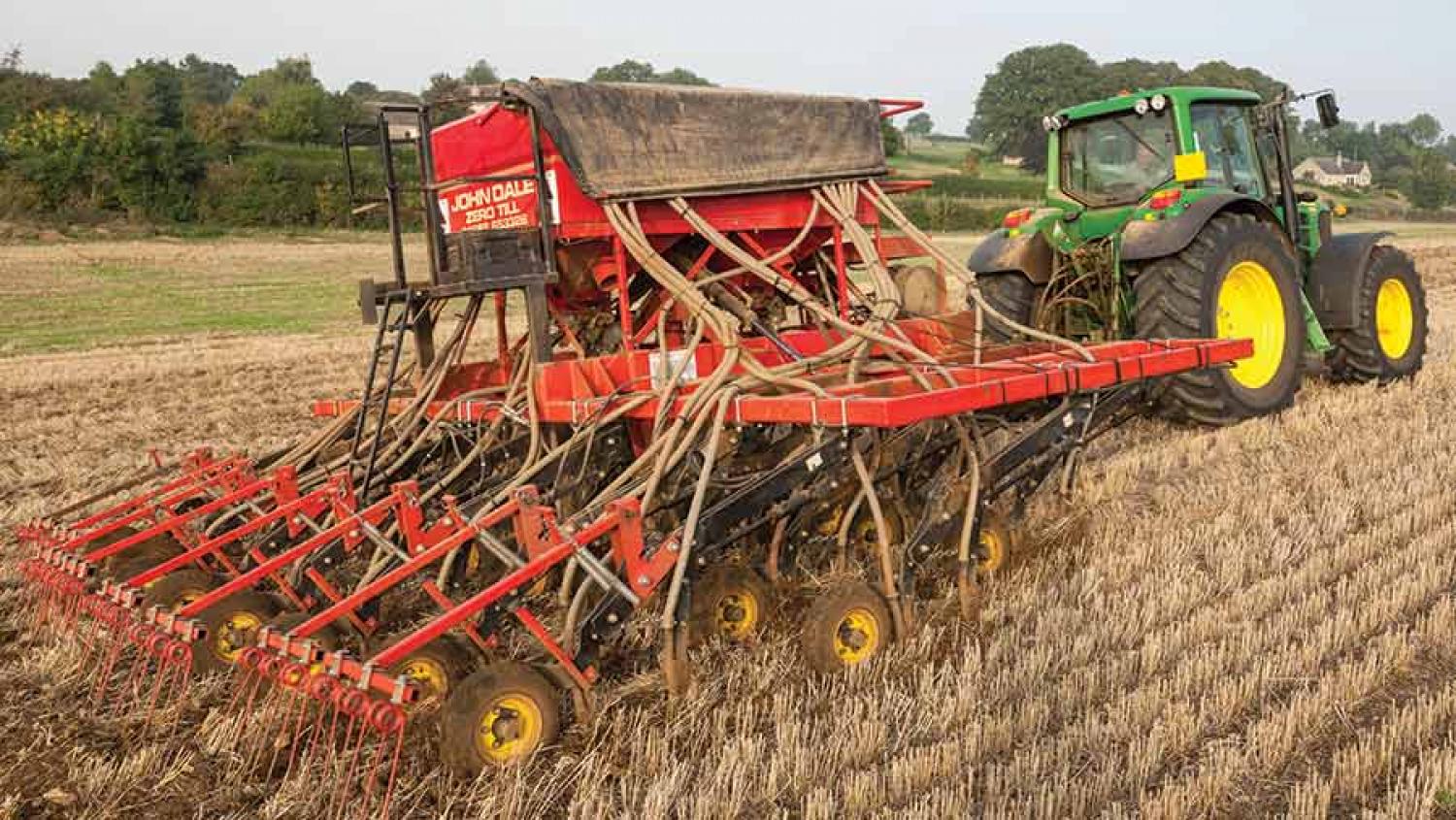
No-till farmers produce wheat for £10/t less than their conventional counterparts, according to a benchmarking study carried out by accountants at the Land Family Business.
The combination of lower yields and lower costs gave average production costs of £101/t on no-till farms in 2017.
This was below the £111/t cost incurred with other establishment systems.
The downside, however, was that no-till farms had yields around 20% lower and gross margins which were more than £250/ha adrift, as well as huge amounts of variation.
Machinery costs
However, where they gained was in a 43% reduction in labour and machinery costs, which is reflected in their lower production figures per tonne.
Machinery costs averaged £31/t, compared to £54/t with other systems.
The figures from the exercise were based on the results from 12 established no-till farms in East Anglia at harvest 2017.
These were then compared with farms in Land Family Business’ on-going benchmarking process, the Rural Business Survey.
The headline of a 20% reduction in yield with no-till establishment was startling, as these systems are more vulnerable to soil type and weather conditions, requiring more flexibility and a different mindset.
No-till benchmarks
- Yields were around 20% lower than average conventional establishment systems
- There was huge variation on no-till farms
- Variable costs were £47/ha lower with no-till, mainly due to agrochemical costs
- Gross margins were lower, but the highest performers compared well
- Production cost per tonne was £10 lower
- Big savings made possible by machinery costs
Yield dip
There was a huge amount of variation in yields. “On no-till farms, wheat yields ranged from 3.2t/ha to 8.7t/ha and gross margins went from £218/ha to £598/ha,” says accountancy specialist Gary Markham of the Land Family Business.
Combined labour and machinery costs on no-till farms averaged out at £298/ha, which compared very favourably to the £528/ha figure on conventional farms.
“These results are based on a small group of practitioners who have been doing no-till for many years,” he adds.
“It’s important to note that no account has been taken for an increase in soil health or any other environmental benefits.”
Looking at machinery costs in detail, he highlights that depreciation, repairs and fuel were all lower on no-till farms (see table below). Capital investment in machinery was also lower at £523/ha, compared with £868/ha.
Labour anomaly
“The oddity in these results, which is difficult to explain after just one year, was that labour costs were higher. For some reason, moving less soil and doing fewer passes hasn’t reduced the labour bill on these units yet,” says Mr Markham.
The profit from arable activities on no-till farms averaged £57/ha, which was below the £89/ha achieved on conventional crop establishment farms.
“Again, the key is the variation. On no-till farms, this ranged from £293/ha right down to a negative figure of minus £84/ha.”
In conclusion, no-till establishment requires a new way of thinking and a different approach to risk.
“The ‘yield is king’ approach isn’t so appropriate. It’s all about questioning convention and being innovative, but it does require a leap of faith.”
|
No-till versus other establishment systems for 2017 harvest |
||
|
|
No-till |
Others |
|
Yield (t/ha) |
||
|
Wheat |
6.6 |
8.5 |
|
Barley |
5.0 |
6.3 |
|
Oilseed rape |
1.7 |
3.0 |
|
Arable gross output (£/ha) |
727 |
1,037 |
|
Variable costs (£/ha) |
||
|
Seed |
67 |
60 |
|
Fertilisers |
134 |
149 |
|
Sprays |
156 |
184 |
|
Other |
22 |
27 |
|
Total |
379 |
420 |
|
Arable gross margin (£/ha) |
348 |
617 |
|
Fixed costs (£/ha) |
||
|
Paid labour |
94 |
64 |
|
Machinery (£/ha) |
||
|
Depreciation |
94 |
156 |
|
Spares & repairs |
47 |
62 |
|
Contracting/hire |
20 |
171 |
|
Fuel |
32 |
52 |
|
Other |
13 |
20 |
|
Total labour and machinery (£/ha) |
300 |
525 |
|
Profit before rent and finance (£/ha) |
57 |
89 |
|
101 |
111 |
|
Source: Land Family Business No-till Survey 2017 harvest and Rural Business Survey |
||
